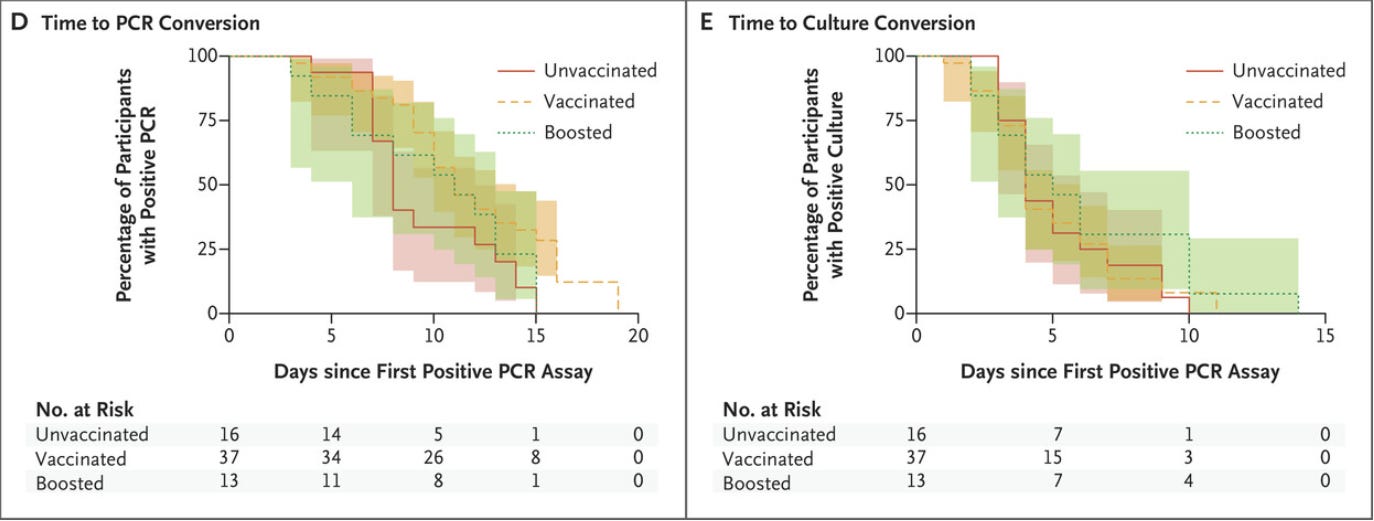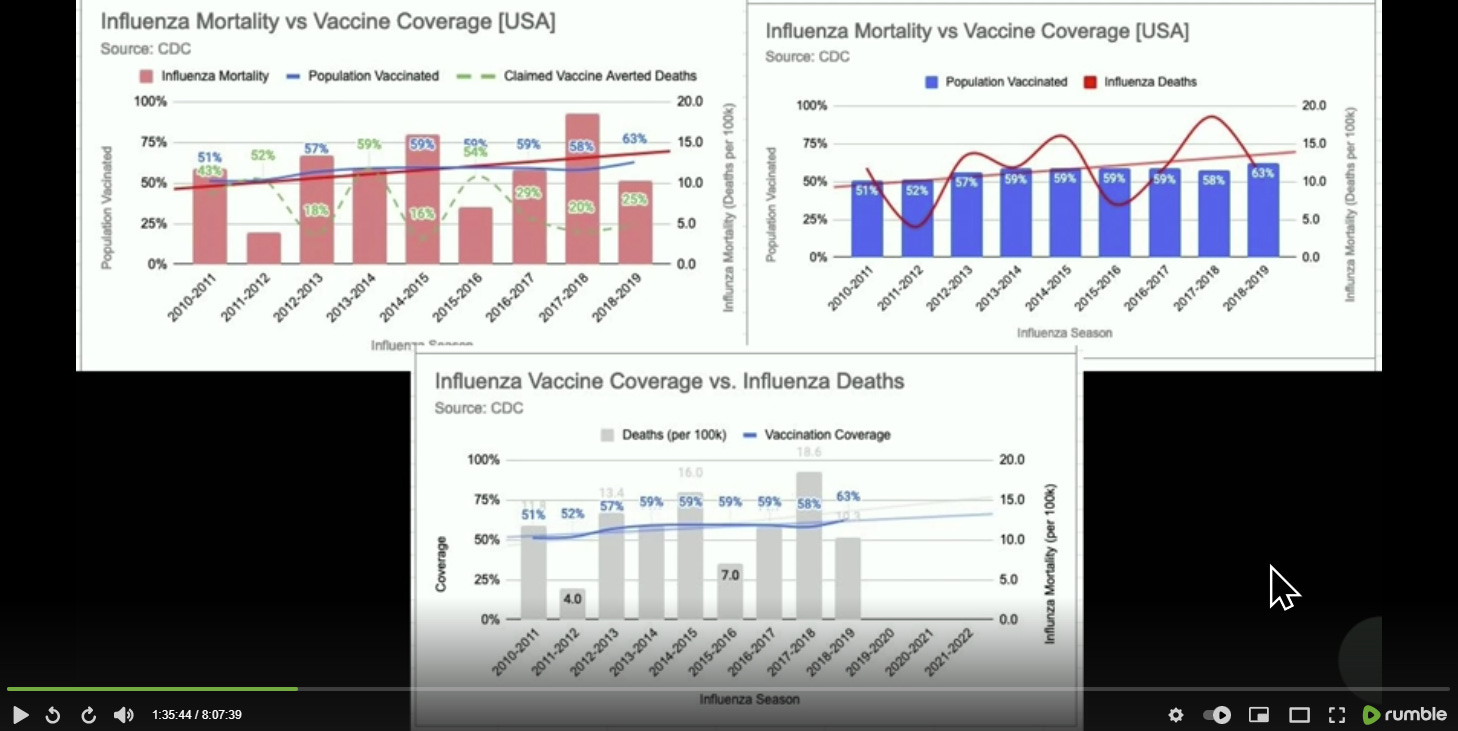COVID vaccine doesn't reduce risk of infection... but it will prolong the length of time you can spread COVIDThere is no mechanism of action that would enable the COVID vaccine to reduce your risk of getting infected. But it will prolong the time you can spread it to others! Whoops!Executive summaryThere’s no known mechanism of action for the COVID vaccine to reduce your risk of infection. So when you see a study showing that, you should be very suspicious. But what is a real effect is that the COVID vaccines increase your window of spreading the virus as shown in this letter to the editor published in NEJM: Duration of Shedding of Culturable Virus in SARS-CoV-2 Omicron (BA.1) Infection. The dataNote how the red line is lower than the other lines. So that means if you got the vaccine, you’re helping to spread the virus to others. Dr. Lynn FynnI’d like to thank Dr. Fynn for bringing this paper to my attention. She talks about how the drug companies fool you with numbers in this highly informative talk at the 4th Florida Summit on COVID which you can watch on Rumble starting at 1:12:00. She talks about RSV, influenza, and COVID. Points include:
SummaryThe COVID vaccines didn’t reduce your risk of getting infected (because it can’t) or your infection fatality rate (IFR) as we know from the US Medicare data. What the vaccines did do is lengthen the time over which you could spread the virus. So, even if you didn’t read my last article about all the deaths caused by the COVID vaccines and think the vaccines didn’t increase all-cause mortality at all, vaccination still made things worse. Of course, this was known in June 2022 when that LTE was published. However, everyone ignored it. It was so low profile, I didn’t even know about it until now. So I thought it was important to let you in on the secret. You're currently a free subscriber to Steve Kirsch's newsletter. For the full experience, upgrade your subscription. |


No comments:
Post a Comment